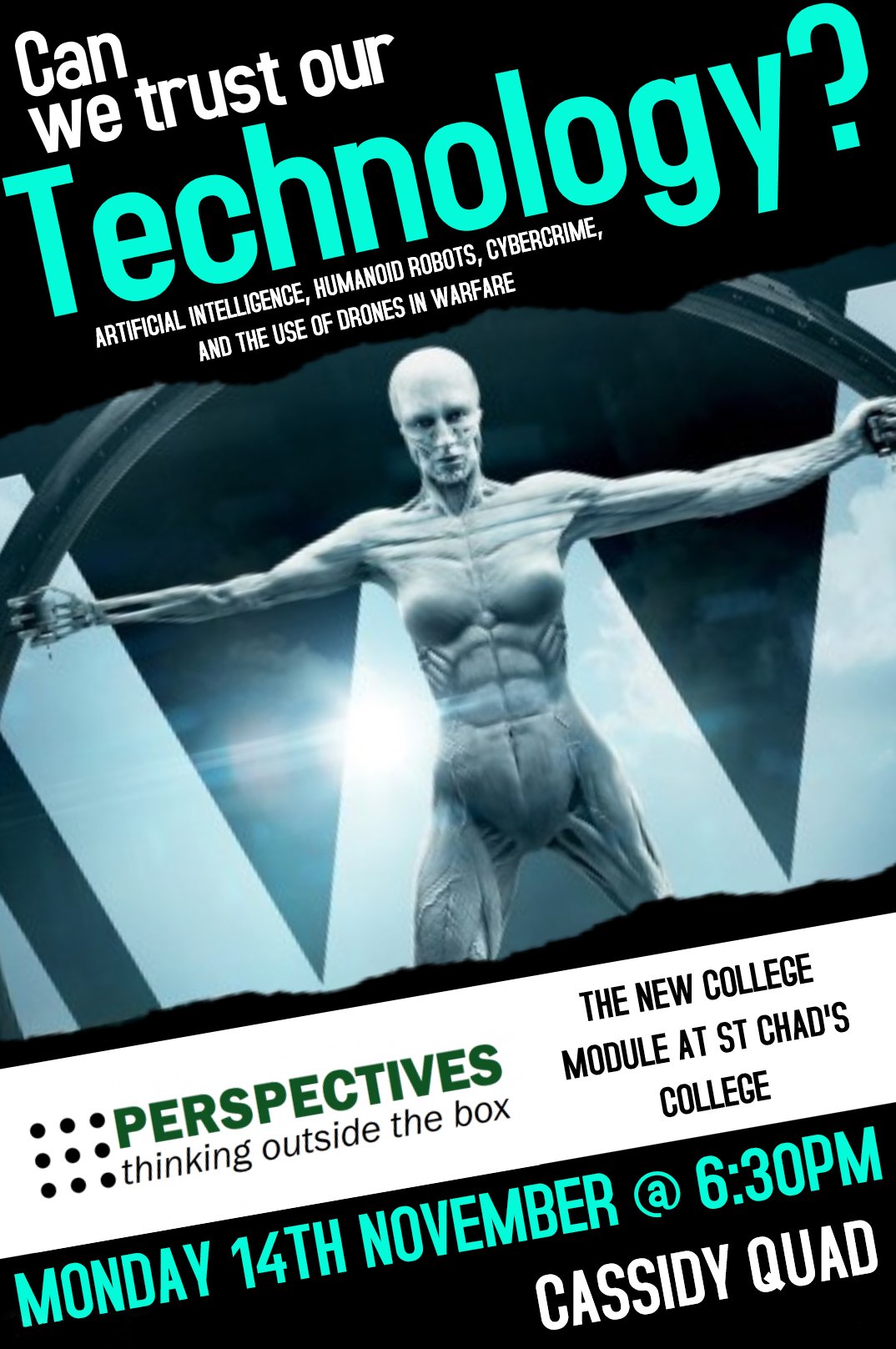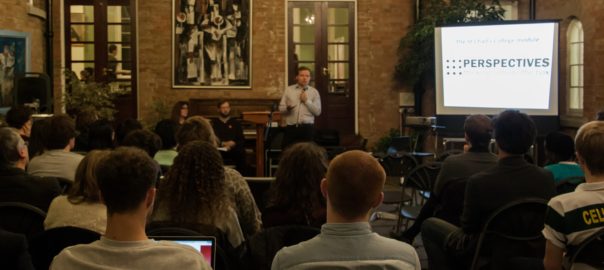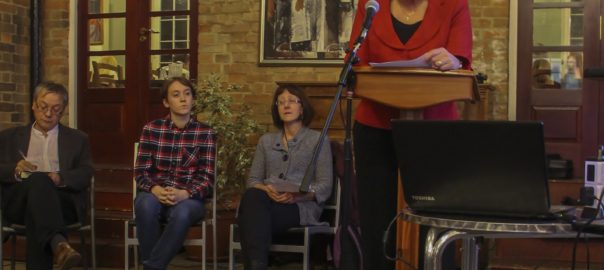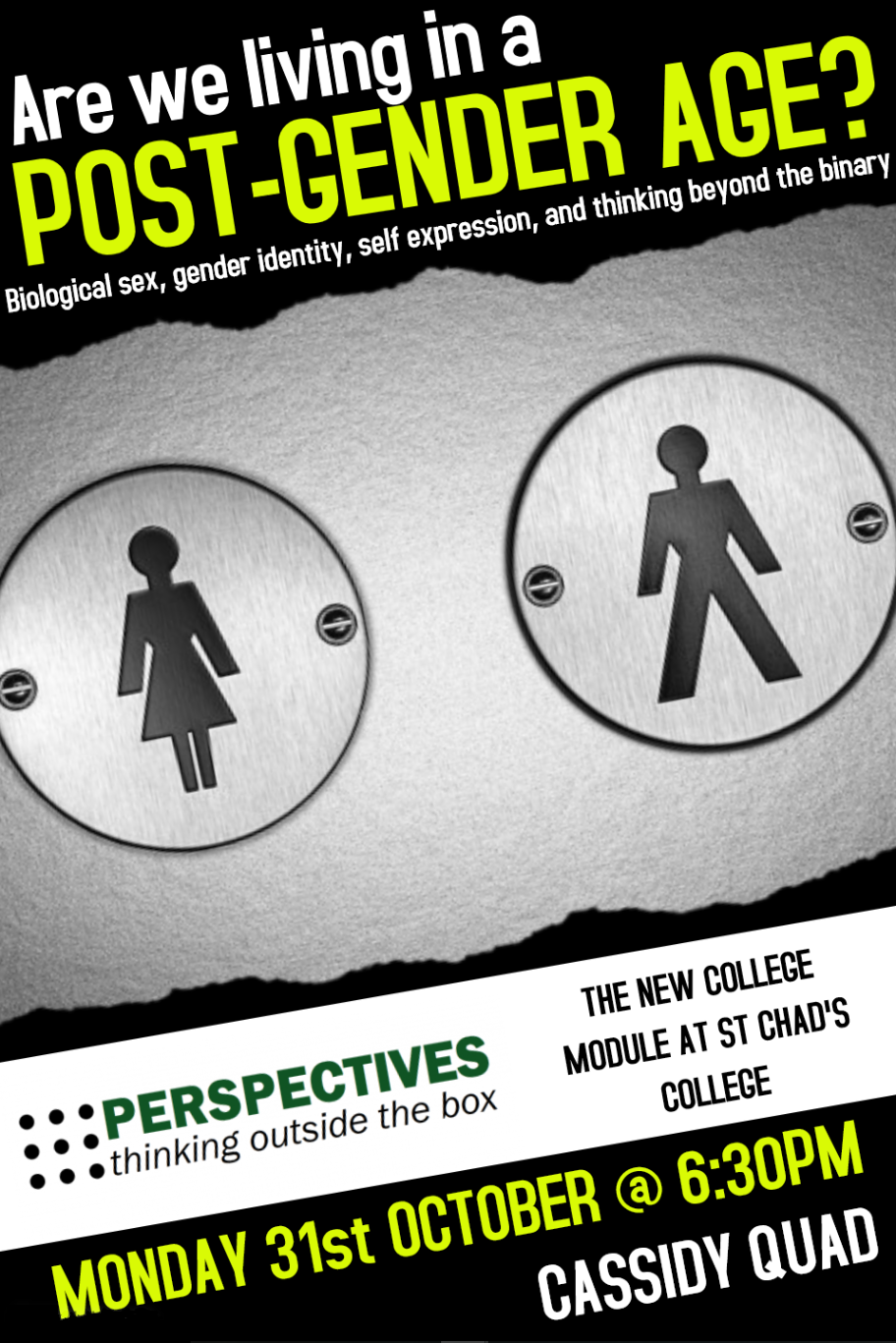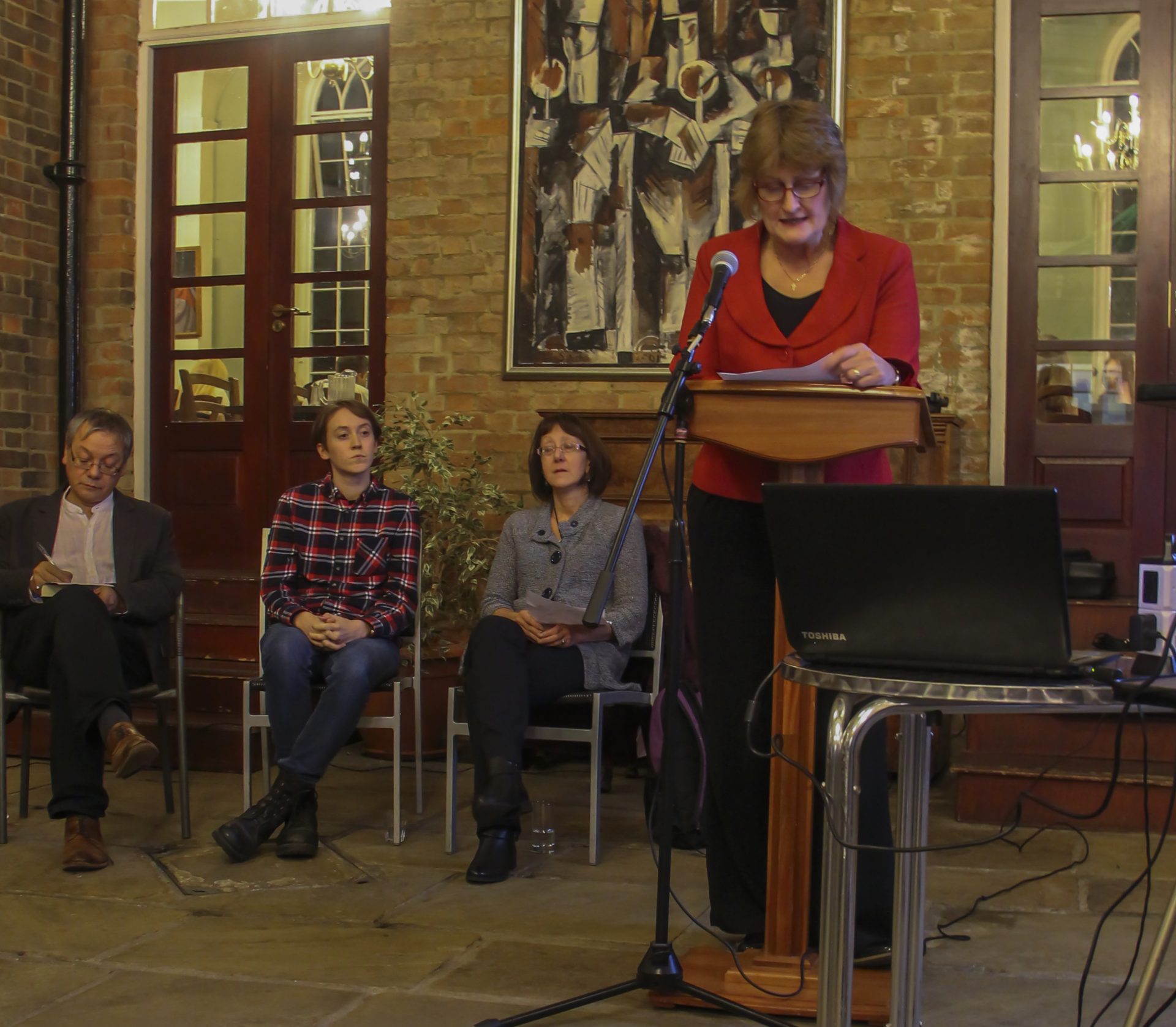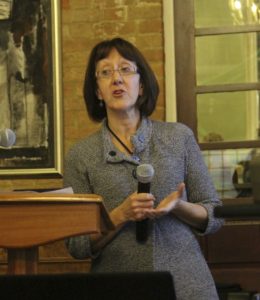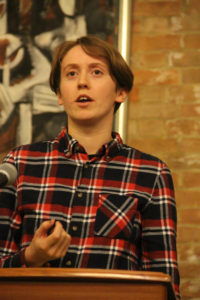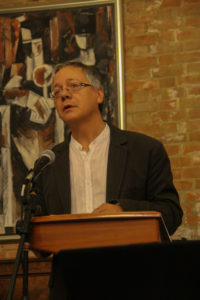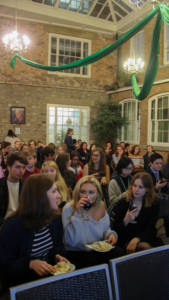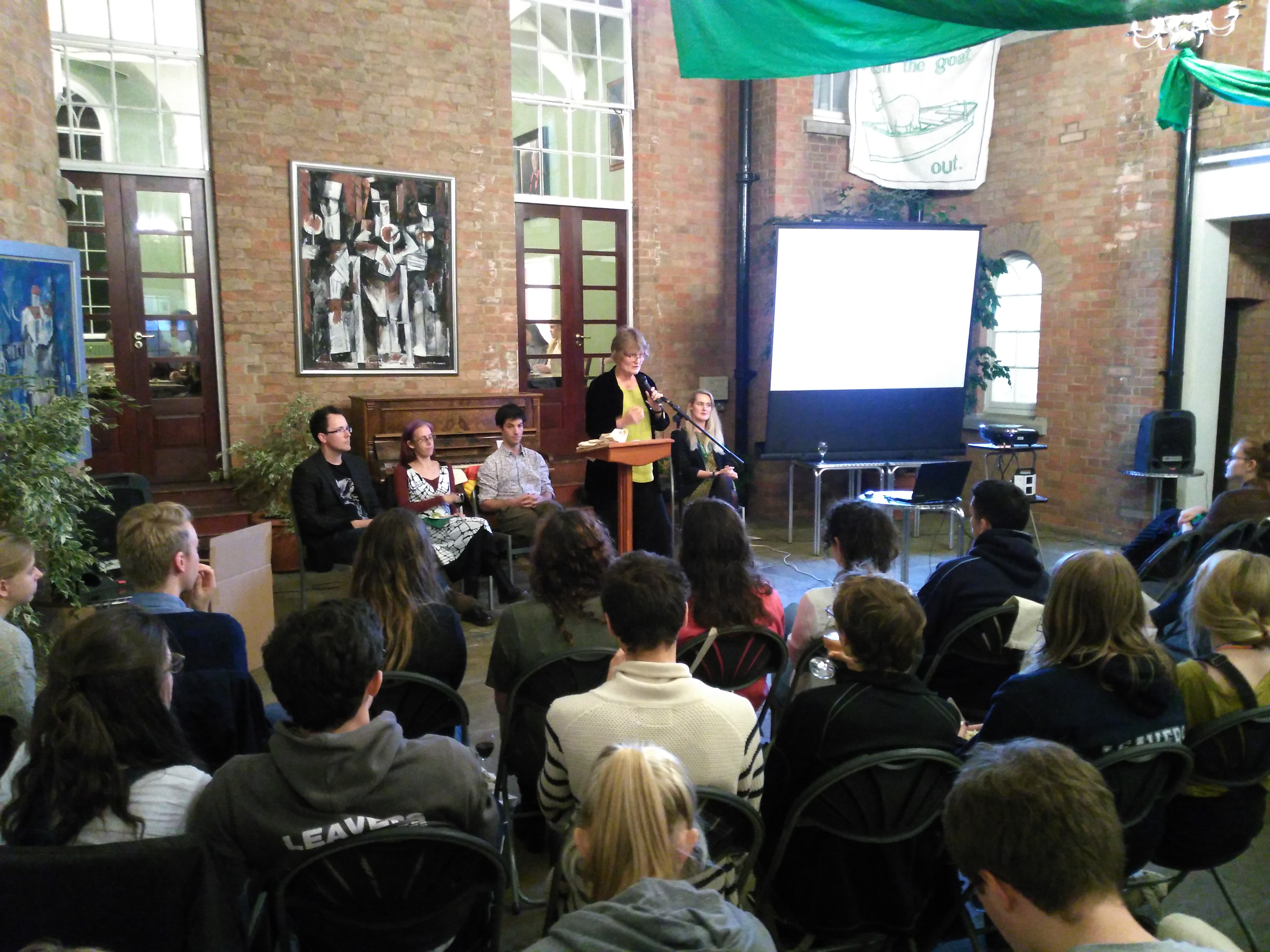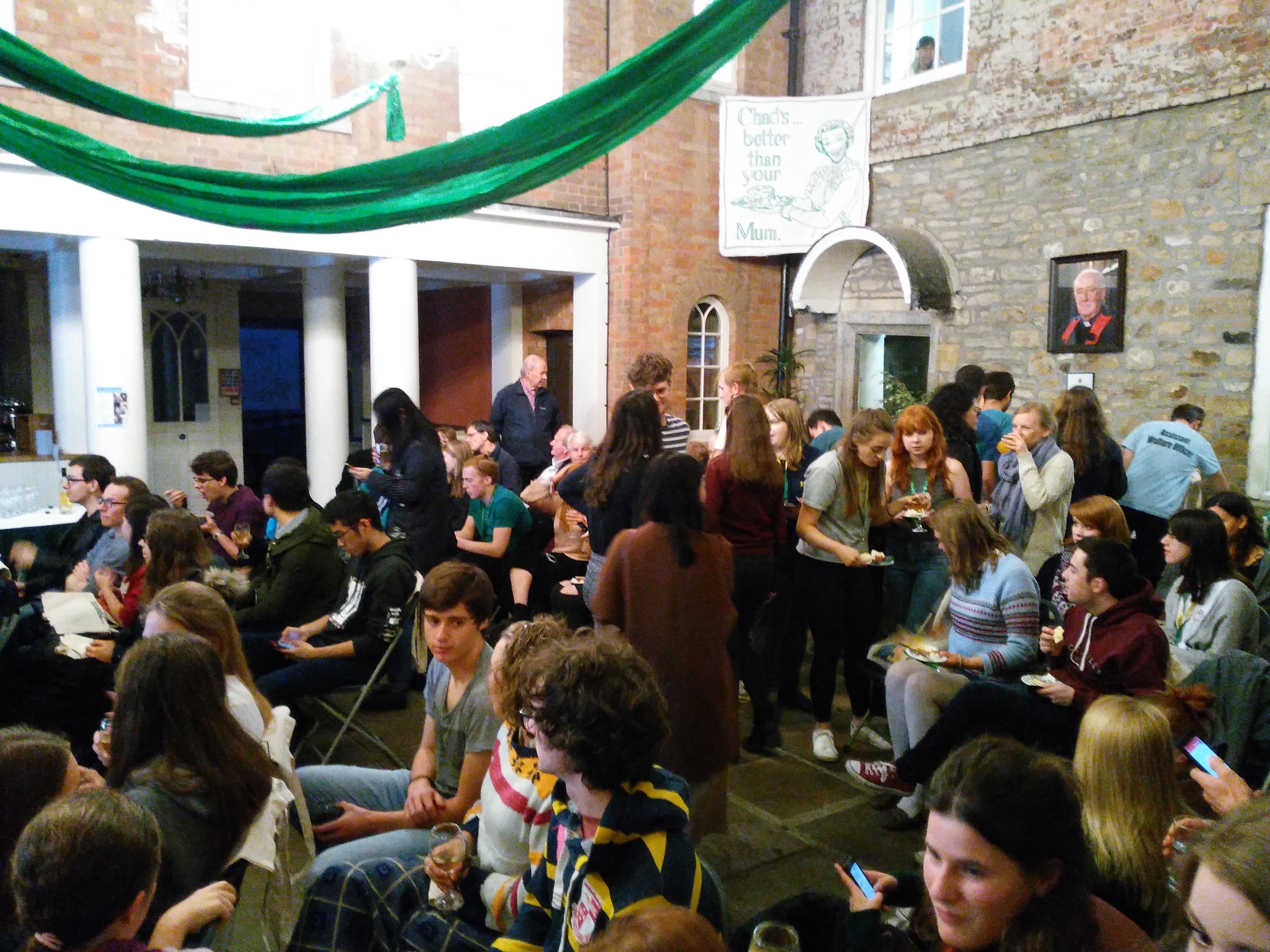[Readings: Ecclesiasticus 3.17‐24; 1 Corinthians 12.4‐20]
In the name of the Father, and of the Son and the Holy Spirit, Amen.
What a privilege it is to be here today to mark the installation of Margaret Masson as Principal of St Chad’s. Margaret is a dear friend and I am thrilled that she has become the Principal of a College I love very much. And to mark this in one of my favourite buildings in all the world, is a joy.
And it’s wonderful to see so many generations of Chadsians represented here, as well as friends and well‐wishers from across the university and beyond. And Margaret’s friends and family have come here from the very north of Scotland to the South of England and even from the United States.
But why? Why does this matter enough for people to come so far? And for that matter, why have an installation service at all? The last time I got a job running a charity, nobody invited me to come to the cathedral and have a bishop introduce me and the Chair of the Trustees install me. So why today? Well, I think it is because to take up the principalship of a Durham college is not just to get a job. It is to step up and declare your willingness to lead a community. A multigenerational community of learning, as Margaret has described St Chad’s. And the Durham students I talk to love the collegiate system precisely because they feel members of a community rather than customers of an institution.
I think the best communities have some things in common
- They are places of growth
- Places of transformation, or transfiguration, as Margaret expressed so beautifully in her Chad’s Day sermon this year
- Placesofdiscernment
- But also places of challenge
- Perhaps most of all, they are places where the whole is more than the sum of its parts, where together a group can achieve things, indeed, can dream things that would be beyond the scope of its individual members.
That takes us right to the heart of the Bible passage just read to us by Brother John who, as the Guardian of the Anglican Franciscan community up the road in Alnmouth, knows a thing or two about community.
The passage John read to us is from a letter from St Paul to the church he had founded in Corinth, written about 20 years after the death of Jesus. He was writing to encourage them and to help them better understand themselves as a community. Remember, says Paul, that you all have different gifts, different things to offer. And crucially, you need them all. On one level, that sounds obvious. And yet it’s strangely hard to accept. For a start, it requires me to be properly aware of my own gifts and limitations. That is what true humility is about. The first reading from Ecclesiasticus is one that is familiar to anyone who has been to a Chad’s Day service. St Chad, of course, was famously humble, ending up as a bishop, through no desire of his own. But he was willing to serve once called and quick to stand down when challenged. Humility is about recognising that I don’t have all the answers, still less all the gifts the world or even the college needs. But it is also about recognising that I do have some gifts that others don’t have and that if our community needs them, then I should be willing to step forward and offer them.
And St Paul reminds us is that we need all of these gifts for us to flourish. Perhaps that is what a real community is: a place where we learn to recognize gifts in ourselves and each other and to create a space where those gifts can grow and the community can flourish as the individuals within it learn to grow and flourish. But as Paul says:
If the whole body were an eye, where would the sense of hearing be? If the whole body were an ear, where would the sense of smell be?
If everyone in Chad’s were a rower, we wouldn’t do so well in hockey matches. And if we all want leading roles in Green Door Productions, who’s going to do the lighting and the publicity? And that’s true of everything in Chad’s. If all our staff were administrators, who would clean the College and notice when a struggling student hadn’t got out of bed for a couple of days? But if all the staff were cleaners, who would run services in the chapel, or do the books or cook the food? This body needs the full range of functions:
- cleaners and cooks,
- maintenance staff and tutors,
- managers and administrators
- rowers and hockey players
- JCR, MCR and SCR
- A chaplain, a bursar and a Senior Tutor.
- Governors and Fellows,
- Donors and alumni.
- And a Principal.
It takes all of us to make a community. And we need to learn to value each of these functions properly.Back when Paul was writing his letter, society was organized on two levels: there was the oikos (the family or household) and the polis (the city‐state/civic space). The theologian Luke Bretherton describes the early church as an unusual ‘Third space’, something radically different: a space where the rules didn’t apply, where rich and poor, men and women, Greeks and Jews, slaves and free could mix and, crucially, where all were valued as brothers and sisters in Christ, rather than being valued for wealth or their status in society. Or, to put it another way: non vestra sed vos. Not what you have but you yourself.
The Chad’s motto underscores this image of community: as a place where we learn to value one another for who we are, not what we have, or where we’ve come from or who our families are. But there is evidence that one reason Paul wrote to the Church in Corinth to emphasise the importance of diversity was because gifts held by higher status people were being more highly valued than others. So acceptance of diverse roles is not enough: we are to value each equally. A much harder challenge but perhaps not surprising coming from an early follower of the God who could have come to earth in any form but chose not to be a king or a celebrity but an uneducated Palestinian Jew from a region of known troublemakers.
What else can we learn from the New Testament model of community? Well, the early church was charged with being a community which existed not just to advance its members, but to focus outside itself: to worship God and reach out to serve others, particularly those whom society rejected. One of the many things I love about Chad’s is its commitment to social justice. Indeed, the fact that I am in Durham goes back to the time when I was Chief Executive of the Refugee Council and Margaret invited me to come to Durham to speak about our work with refugees. I was made a Fellow of St Chad’s by the then Principal, Joe Cassidy, and within a few months I was living in College for a year doing a Masters at the University and Durham is now my home.
Finally, the New Testament vision of community was also a space where people could learn from each other. It was a human scale community where people had disputes, made mistakes and generally messed things up. Much as we do today. We would all do well to recall the helpful advice about living in community: the secret is not to pretend that other people aren’t annoying, but to assume that you are too. In a good community, we can all learn from our own failings and those of others. We are allowed to fail well as well as to succeed well, and to learn from both. During a business course some years I was told a story about a young graduate who landed his dream job in a business where he was put in charge of launching a new project. It started well but then somehow it got out of control and all went wrong and he had to go and tell his boss that his new project had racked up losses of £ 1million. There was a long silence and then the young man said: ‘Are you going to fire me?’ ‘Fire you?’ answered his boss. ‘I’ve just spent a million pounds on your education…’
The early church was a community which had more than its fair share of challenges but it also found time for celebration and mega-formals. Or feasts, as they may have called them. My hope for Chad’s is similar: that it will be a scholarly community which also navigates the tricky issues that abound at the moment – such as freedom of speech; or issues of sex and gender ‐ but also that it will never forget the importance of celebrating together, in formals, at Candlemas and above all on Chads’ Day. That it will be a place which enables students to thrive academically while also celebrating the joy of being human, of kindness, of care for each other. A community which resists the trend towards the instrumental in education and the tendency to commodify relationships. The tutorial system is a nice example of the reverse of that: our tutors give freely of their time and gifts to support and walk with students during their years in Chad’s. But as someone who served for years as a tutor, I gained far more than I gave. And I am profoundly grateful to all the tutees who trusted me with their joys and troubles, successes and challenges and taught me so much in the process.
And that’s one of the many reasons I love Chad’s. Not just out of a blind loyalty and conviction it’s the best college in Durham. (Even if I secretly think it is.) But because of the all the kindnesses I have been shown and the things I have learned from members of this community. A good community reminds us regularly of what life is really about. For me, it’s all about love: we are here to love God and each other, to try to love our enemies as well as our friends, to remember to love the marginalised as well as those society regards as successful. If only because we have finally worked out that we need each other in order to flourish.
So there it is: St Chad’s College is called to be a place of academic excellence but also a community of kindness and justice – and fun. It exists to enable its students to learn and grow into the people they ‐ you ‐ are meant to be. And then to go out there and change the world. But that requires leadership.
We were very blessed in our last Principal, Joe Cassidy, or Papa Joe who was much loved in Chad’s. But we are equally blessed in our new Principal:
- who is a woman of acute intelligence and insight
- someone of vision and wisdom
- who leads by inspiring and enabling others
- who has held the heart of this community for a long time
- who knows each and every one of you Chadsians and loves you anyway.
- who has stepped up and pledged to put her considerable gifts at the service of this College, atour service.
Margaret, we thank you and we look forward to journeying with you. May God bless you and St Chad’s College in the years ahead.
Amen
Download Link
